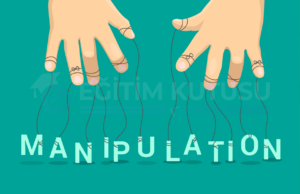Psychology behind Choices – In our everyday lives, we are faced with a myriad of choices – from the trivial ones like what to have for breakfast, to the more consequential ones that shape our careers and relationships. Have you ever wondered why you make the choices you do? The field of psychology offers fascinating insights into the complex interplay of factors that influence our decision-making process. In this article, we’ll delve into the psychology behind choices, uncovering the cognitive and emotional mechanisms that guide our actions.
The Brain’s Decision-Making Center
The Prefrontal Cortex: The Master Commander
At the heart of our decision-making process lies the prefrontal cortex, a brain region responsible for planning, reasoning, and self-control. This area evaluates the pros and cons of different choices, weighing immediate gratification against long-term benefits. It’s what helps you resist the temptation of that delicious but unhealthy dessert when you’re committed to a fitness goal.
The Role of Emotions
Emotions as Decision Influencers
Contrary to the belief that decisions are solely rational, emotions play a pivotal role in shaping our choices. Emotionally charged events can color our decision-making, sometimes leading us to opt for the unexpected. Think about how a spontaneous trip seems appealing after a stressful week.
Fear and Uncertainty: The Risk Aversion
Fear and uncertainty often drive us to make cautious decisions. The amygdala, a part of the brain responsible for processing emotions, can trigger a “fight or flight” response when faced with uncertainty. This mechanism helped our ancestors survive in a dangerous environment but can also lead to missed opportunities in the modern world.
Social Influences
The Herd Mentality: Going with the Flow
Human beings are inherently social creatures, and our choices are influenced by those around us. The fear of missing out (FOMO) can nudge us to choose what others are choosing. From fashion trends to social media challenges, the herd mentality is a powerful force in decision-making.
The Paradox of Choice
The Overwhelm of Abundance
In a world with endless options, making a decision can become overwhelming. This phenomenon, known as the paradox of choice, highlights how an abundance of options can lead to anxiety and decision fatigue. Ever spent way too long choosing a movie on a streaming platform?
Nudges and Decision Architecture
Making Choices Easier
Marketers and policymakers often use subtle “nudges” to guide our decisions in a particular direction. These nudges leverage cognitive biases, like the default effect, to simplify choices. For instance, when enrolling in a retirement plan, having “opt-out” as the default option increases participation rates.
The Power of Habit
When Choices Become Routine
Habits are essentially choices we make so often that they become automatic. Understanding the psychology of habits can help us create positive routines and break free from negative ones. Want to hit the gym regularly? Transform it into a habit.
Conclusion
In conclusion, the psychology behind choices is a complex interplay of cognitive, emotional, and social factors. Our decisions are not purely rational; they are shaped by our emotions, past experiences, and the environment around us. By understanding the underlying mechanisms, we can make more informed decisions and even influence the decisions of others.
FAQs
- Q: Can psychology predict every choice we make?
- A: While psychology offers insights, human decisions are influenced by a multitude of factors, making prediction challenging.
- Q: How can I avoid making impulsive choices?
- A: Pause and assess the potential outcomes before making a decision. This helps you avoid impulsive actions driven by emotions.
- Q: Are all habits hard to break?
- A: While breaking habits can be challenging, understanding the cues and rewards that sustain them can make the process easier.
- Q: Can social influences be positive for decision-making?
- A: Absolutely! Positive social influences can inspire us to make healthier choices and embrace new experiences.
- Q: What’s the first step to making better choices?
- A: Self-awareness is key. Reflect on your values and goals to align your choices with what truly matters to you.




